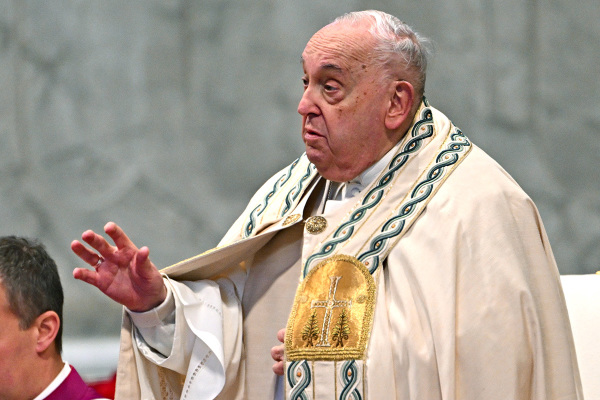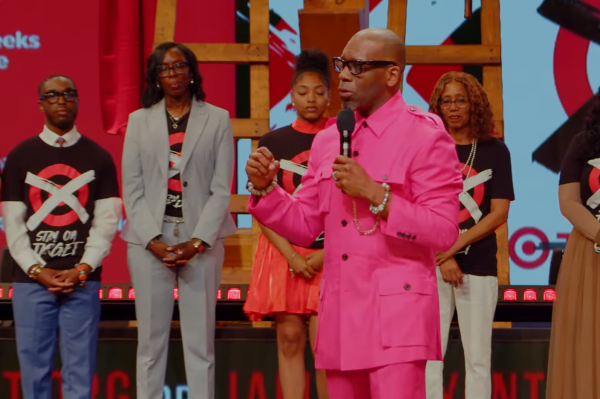Historian Tom Holland views Christianity through a secular lens

Historian and author Tom Holland penned an engaging book in 2019, titled, Dominion: How the Christian Revolution Remade the World. While recognizing the massive global influence of Christianity, Holland himself does not personally profess faith in Christ. He points to his childhood when explaining how he came to embrace the particular ideals and beliefs he holds dear today.
During a conversation on Uncommon Knowledge with Peter Robinson that included Stephen Meyer and Douglas Murray, Holland stated: “When I was a child, I was raised Christian. I loved the Bible stories. But the truth was that I actually preferred the figures of the great empire, so I was on the side of Pharaoh rather the children of Israel; I was on the side of Nebuchadnezzar rather than the Judeans; I was on the side of Pontius Pilate, I am ashamed to say, rather than Jesus.”
Holland, who was born in Oxford, England, 56 years ago, also shared a few of his current beliefs: “I want to believe in the things I believe in as a secular humanist. I want to believe in human rights.” At the same time, Holland senses the enormous impact Christianity has had upon his philosophical DNA. He said, “I realized that essentially I, my friends, the country, the civilization I live in is actually not really the heir of Greece or Rome at all. It has been profoundly and utterly shaped by Christianity.”
Holland added: “All of us in the West, whether we are believers or nonbelievers, whether we are Jews, Muslims, Hindus living in the West, we are all of us in a sense goldfish swimming in Christian waters, because Christianity has so radically affected our assumptions, not just about ethics or morality, but about the most basic way we contemplate society; the idea of the secular; the idea of there being something called religion; all of this is so shaped by Christianity.”
Tom Holland's secular humanism seems to stem from his childhood. Even though he learned some Bible stories, he was apparently not grounded in the Gospel. If the Gospel promises had been planted down deep in Tom's heart and then continually watered and carefully reinforced during his childhood and teen years, he could have easily been born again. And if such discipling efforts had occurred, he would have likely brought a living faith in Christ with him into adulthood.
Did Tom in his childhood ever know Jesus? Did he accept and appreciate the Gospel message when he was 7? What did Tom believe at age 11? You see, the new birth is required in order to know God and to follow Christ.
I will tell you what worked extremely well in our family with our four children. Tammy and I shared the Gospel with them all the time. And we would often ask them, “What did Jesus do for us?” By age 3 or 4, each of them would confidently respond, “Jesus died on the cross for our sins so we can go to Heaven.” It was more than just “the right answer.” The assurance of salvation in their heart provided tremendous comfort and power, even at such a young age. I outlined our parental approach in my CP op-ed, “5 Tips for Raising Children Who Love Jesus.”
Our adult children continue to joyfully live for the Lord and attend church every Sunday, not in order to get a check in the box or out of some sort of legalistic obligation, but out of a profound appreciation for the fact that Jesus died on the cross to redeem them. They are exceedingly thankful for the assurance that Heaven is their eternal home, and they sincerely seek to walk closely with Christ everyday. The Gospel message they embraced at age 4, has continued to serve as a firm foundation for their faith and life into adulthood.
A 2019 survey showed 43% of believers coming to faith in Jesus by age 12, and 15% accepting Christ by age 6. A soft heart and an uncluttered mind provide fertile soil when planting the seed of the Gospel in the soul of a child.
Interestingly, Tom Holland stated during the Uncommon Knowledge interview: “At the molten core of Christianity is the idea that you can be born again.” How true it is! And yet, Tom faces a huge spiritual dilemma within his own soul. Christian faith involves advancing beyond just recognizing the macro influence of Christianity on a global scale, to actually embracing the eternal benefits of the Gospel on the micro level of personal faith in Jesus.
Since the Gospel message was not rooted in Tom's heart and mind during his childhood and teen years, it will be more challenging for him to come to Christ today given his age and his preconceived notions. For example, he was once quoted as saying, “I have seen no evidence that would satisfy me that anything supernatural exists. I have seen no proof for God.”
Nevertheless, there is hope! Tom will simply need to bring his sins to Jesus with the faith of a child.
Over the past 30 years, my wife and I have witnessed plenty of empirical evidence in our home that illustrates why Jesus gave His disciples these specific instructions: “I tell you the truth, unless you change and become like little children, you will never enter the kingdom of Heaven” (Matthew 18:3).
While none of us can rewrite world history or relive our childhood, we can begin anew and be born again through faith in Christ, regardless of our age, our religious background, or our childhood fascinations. Faith in Jesus provides an exit from secular humanism and many other “isms,” and is the gateway to a personal relationship with the God of Abraham, Isaac and Jacob.
Being born again involves more than simply swimming in Christian waters. You need to actually get into the boat with Jesus as you trust Christ to forgive your sins. You know, the way children do when they are lovingly and continually saturated with the good news of the Gospel. The guidance the risen Christ gave to Thomas remains the only safe path forward today: “Stop doubting and believe” (John 20:27).
Dan Delzell is the pastor of Redeemer Lutheran Church in Papillion, Nebraska.





















